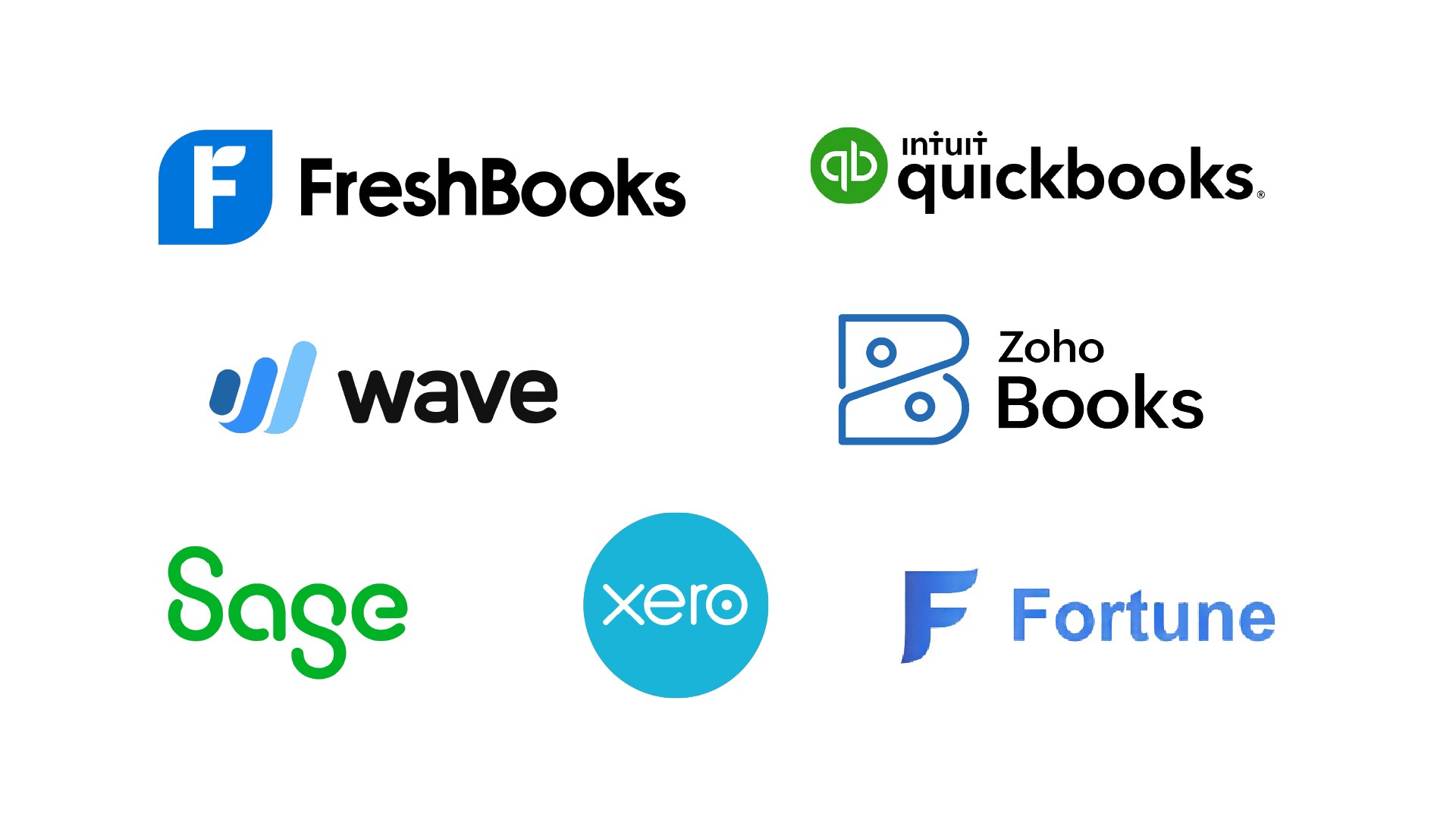
Back to Blog
Share Post:

AI
Feb 19, 2024
Tailored AI Accounting Solutions for Small and Medium Enterprises
Artificial Intelligence (AI) in accounting refers to the integration of advanced algorithms and machine learning techniques into accounting software. This technology enhances the accuracy, speed, and efficiency of financial processes, automating tasks such as data entry, analysis, and reporting.
This article explores how AI is revolutionizing accounting for small and medium enterprises (SMEs). We delve into the definition of AI in accounting, its growing trend in business, and the benefits it offers to SMEs.
Additionally, we discuss various aspects of AI-based accounting software, highlighting the Fortune App as a prime example. Our exploration includes an overview of AI accounting solutions, features, and functionalities, as well as the pros and cons of the Fortune App, concluding with key takeaways for businesses.
What Is Artificial Intelligence
Artificial Intelligence (AI) is a technology that allows machines to simulate human intelligence. It's about creating smart machines that can learn from experience and adapt to new information. AI is used in various ways, such as in self-driving cars, chess-playing computers, and even in natural language processing, including speech recognition and text analysis.
There are several types of AI, but the most common today is narrow AI, also known as weak AI. This type of AI is designed to perform specific tasks and often does so more quickly and accurately than humans. However, it doesn't possess the broad, general intelligence of humans.
One key aspect of AI is machine learning. This involves computers learning to act without being explicitly programmed, by processing massive amounts of data and identifying patterns within it. Deep learning, a subset of machine learning, is particularly influential, using complex neural networks to replicate human intelligence.
AI applications today are impressive, but we're still a long way from achieving artificial general intelligence, which would be on par with human intelligence.
How AI Is Becoming The Next Big Trend For Businesses
The integration of Artificial Intelligence (AI) in business is rapidly becoming a transformative trend, offering innovative solutions and efficiency improvements across various sectors. Here's how AI, including tools like the Fortune App, is reshaping the business landscape:
Automating Routine Tasks: AI is playing a crucial role in automating mundane tasks such as data entry, content creation, and customer service. The Fortune App, an AI-based accounting software, exemplifies this trend by automating complex accounting tasks, thereby saving time and reducing errors for small and medium enterprises (SMEs).
Enhancing Personalization: AI technologies enable businesses to create highly personalized experiences for their customers. By analyzing customer data, AI can generate tailored recommendations and communications.
Creating Microinteractions: AI facilitates the design of microinteractions in digital products and services, enhancing user experience with small but impactful design elements. These can range from animations on websites to more intuitive user interfaces.
Improving Accessibility: AI is crucial in making digital content accessible to people with disabilities. Automated image descriptions, video captioning, and accessibility testing are some areas where AI is making a significant difference..
Boosting Efficiency and Creativity: AI tools like the Fortune App not only automate repetitive tasks but also foster creativity in problem-solving and business strategy. The app's AI-powered analytics and reporting features enable businesses to uncover creative financial management strategies, optimizing cash flow and resource allocation.
How Is AI Benefitting Small and Medium-Scale Enterprises
Enhancing Financial Reporting with AI
AI is revolutionizing financial reporting for small and medium-sized enterprises (SMEs). By automating data collection and analysis, AI helps produce accurate financial reports much faster than traditional methods.
This technology minimizes errors and provides detailed insights, enabling SMEs to understand their financial health better and make informed decisions quickly.
Streamlining Billing and Cashflow Management
AI plays a crucial role in improving billing processes and cash flow management. By using AI, SMEs can automate invoice generation, track payments, and predict future cash flow trends. This automation not only saves time but also helps in better managing receivables and payables, ensuring smoother financial operations.
Business Intelligence in Accounting
Business intelligence in accounting is another area where AI is making a significant impact. AI-powered tools analyze financial data to uncover trends, identify cost-saving opportunities, and provide actionable insights. These insights enable SMEs to strategize more effectively, reduce costs, and increase profitability.
Future Developments in AI Accounting
The future of AI in accounting looks promising, with advancements such as predictive analytics and natural language processing. These technologies will further enhance the capabilities of accounting software, offering more sophisticated analysis and even more intuitive interaction with financial data.
AI's Role in Comprehensive Financial Management
AI extends beyond basic accounting tasks, encompassing all aspects of financial management. It assists in budgeting, financial planning, risk assessment, and compliance management. By providing a comprehensive view of a company's financial status, AI enables SMEs to manage their finances more effectively and strategically plan for the future.
AI-Based Accounting Software - How They Work?
AI-based accounting software, including solutions like the Fortune App, leverages advanced AI technologies to transform the accounting industry in several key areas:
Automating Repetitive Tasks: AI streamlines repetitive accounting tasks such as data entry, invoice processing, and reconciliation. By reducing the need for manual entry, AI decreases the risk of human error, leading to more accurate financial reporting.
Fraud Detection: AI algorithms are capable of analyzing large volumes of financial data to identify patterns and anomalies that may indicate fraud. This advanced detection capability enhances the security and reliability of financial transactions and audits.
Predictive Financial Analysis: AI tools excel in analyzing vast amounts of financial data to offer real-time insights into a business’s financial health. They are effective in forecasting cash flows and identifying financial risks and opportunities, enabling better financial planning and decision-making.
Budgeting and Forecasting: AI significantly aids in budgeting and forecasting by automating these processes and providing accurate financial forecasts based on data analysis. This leads to time and cost savings and supports strategic decision-making.
Tax Compliance and Preparation: AI software can analyze financial data to identify tax deductions and credits, ensuring compliance and maximizing tax savings.
Enhanced Data Analysis and Predictions: AI improves the efficiency of managing financial data by analyzing transactions, budgets, and accounting data to identify trends and areas for improvement.
Best AI Accounting Solution For Small and Medium Enterprises
When choosing an AI accounting solution, SMEs should consider factors like scalability, user-friendliness, and integration capabilities.
Fortune App
Overview
The Fortune App is a cutting-edge AI accounting solution designed specifically for small and medium enterprises (SMEs). It offers a comprehensive approach to financial management by integrating advanced artificial intelligence technologies.
This software is tailored to meet the unique financial needs of SMEs, providing them with an efficient and user-friendly platform to handle various accounting tasks.
Crucial aspects of Fortune App include its ability to automate routine financial processes, such as data entry, invoice processing, and transaction categorization. This automation not only saves valuable time but also minimizes the likelihood of human error, resulting in more accurate and reliable financial data.
Features and Functionalities of Accounting Software
Automated data entry: Reduces manual effort and potential errors.
Real-time financial reporting: Provides up-to-date financial status for better management.
Predictive analytics: Helps in forecasting financial trends and making informed decisions.
Fraud detection: Enhances the security of financial transactions.
Budgeting and forecasting tools: Assists in planning and managing financial resources.
Invoice processing and reconciliation: Streamlines billing and payment processes.
Pros of Fortune App
Time-saving: Automates routine accounting tasks, freeing up time for strategic activities.
Increased accuracy: Reduces errors in financial data and reporting.
Enhanced decision-making: Offers valuable insights through data analysis and predictive analytics.
User-friendly interface: Easy to use, even for those with limited accounting knowledge.
Scalable: Adapts to the growing needs of SMEs.
Cons Of Fortune App
Data dependency: Relies on the input of quality data for best performance.
Learning curve: May require time to fully understand and utilize all features.
Cannot replace human judgment: AI assists but does not replace the need for professional accountant expertise.
Potential cost: While cost-effective, there may be expenses associated with implementation and ongoing usage.
Final Verdict
In conclusion, AI is transforming the landscape of accounting, especially for SMEs. By integrating AI into accounting solutions like the Fortune App, businesses can enjoy enhanced efficiency, accuracy, and strategic insights. These advancements not only streamline financial processes but also pave the way for future innovations in the field.
As AI continues to evolve, SMES must stay informed and embrace these technologies to remain competitive and financially healthy. With tools like the Fortune App, these businesses can harness the power of advanced technology to simplify complex financial tasks, gain deeper insights, and make more informed decisions.
FAQs
How does accounting software improve business productivity?
Accounting software automates financial tasks, reducing errors and saving time, which enhances overall productivity. The Fortune App, for instance, offers AI-driven analytics for added efficiency.
What is the effect of accounting software on business?
Accounting software leads to improved financial accuracy and efficiency, aiding in informed decision-making. Tools like the Fortune App provide real-time insights and fraud detection.
How does accounting software help a business?
Accounting software streamlines bookkeeping, tax preparation, and budgeting, facilitating efficient financial management. The Fortune App adds value with automated features and financial analysis.
How does accounting affect business performance?
Effective accounting, supported by software, ensures accurate financial tracking and planning, crucial for business growth and financial health. Software like the Fortune App provides key insights for better financial management.
Share Post:




